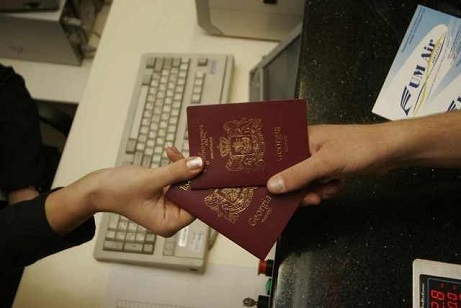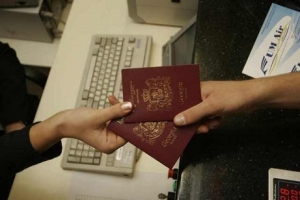Georgia to Issue Abkhaz and Ossetians Passports, Granting Visa Free Travel to EU
TBILISI - Georgia’s government will discuss issuing passports to residents of its two breakaway regions Abkhazia and South Ossetia, granting each with visa free travel to the EU, First Deputy Minister for Reconciliation and Civil Equality Ketevan Tsikhelashvili said Friday.
Tsikhelashvili announced the plan following an interagency committee meeting, saying the government is currently arranging for the issuance of Georgian passports to the residents of the two Moscow-backed regions.
The government wants to assure the populations of Abkhazia and South Ossetia that they will be guaranteed to have proper updated travel documents, including biometric Georgian passports.
Travel and identification documents manufactured by Russia and distributed by Moscow’s proxy rebel governments in Sukhumi and Tskhinvali are considered illegal by the international community, as the two regions are legally recognized as parts of Georgia.
Further complicating the matter for the populations of Abkhazia and South Ossetia is the EU’s policy towards Russian passport holders residing in either region. In order to prop-up the legitimacy of the separatist governments and in violation of international law, Russia freely issues passports to all Abkhaz and Ossetian residents.
European governments bar the issuance of Schengen visas to those holding a Russian passport that reside in regions currently occupied by Moscow, including Abkhazia and South Ossetia, as well as Ukraine’s Crimea Peninsula.
The United Kingdom, United States and Canada also bar Russian citizens residing in occupied territories - made up of the roughly half dozen frozen conflict zones that appeared in the former Soviet republics in the mid-1990s - from acquiring visas.
“After all of the necessary procedures are completed, Georgian passports will be available to any and all residents in the occupied territories. They will then be able to travel visa-free to Europe and many countries around the world,“ Tsikhelashvili said.
The move is Georgia’s most recent attempt at exerting its soft power in Abkhazia and South Ossetia as a counter to Russia’s policy of keeping the regions under Moscow’s authority through a combination of force and coercion.
Georgian educational institutions recently opened their doors to students from Abkhazia and South Ossetia, offering free education and housing. Georgian hospitals and medical centers are also offering free care to the regions’ residents.
Georgia expects its visa-free regime with the EU to come into force by June. The European Commission has already proposed to the Council of the European Union and the European Parliament to lift visa requirements for Georgian citizens within six months.
Once the European Parliament and the Council adopt the proposal, Georgian citizens with biometric passports will be able to travel visa-free to the Schengen area for up to 90 days.
Citizens of most Western countries have been able to travel visa-free to Georgia since June 2006.
Edited by Nicholas Waller












